We are delighted to announce that Carolina Sá Carvalho has joined our Department as an Assistant Professor Tenure Stream.
Carolina obtained her PhD from Princeton University, and she was previously an Assistant Professor at the University of North Carolina at Chapel Hill.
Her research focus is on Latin American literature and visual culture with emphasis on 19th- and 20th-century Brazil, imperialism, photography, media theory, and environmental humanities. Her essays and articles examine a range of topics, including realist aesthetics, humanitarianism, infrastructure, and the relationships between print and visual cultures. In broad terms, her book-length projects have focused on aesthetic and political responses to the violent transformations unleashed by the expansion of extractive capitalism in the region.
She explains her most recent projects:
“In my first book, Traces of the Unseen (forthcoming, Northwestern University Press), I explore the role of photography as visual evidence of the destructive processes of modernization in early twentieth-century Latin American regions at the edges of an expanding capitalist world, such as the Amazon and the Brazilian sertão. I examine how photographs were exhibited – framed, captioned, cropped, and circulated – both to produce credible proof that something had happened (for example, that Indigenous peoples were being enslaved to harvest rubber or that thousands of migrant workers had died during the construction of a railway in the Amazon) and to teach increasingly connected urban publics that what had happened should not have happened. I argue that there was never any consensus about how photography could provide that “ethical knowledge,” just as there was not agreement on what modernity should look like on the peripheries of extractive capitalism. This book is not therefore about the effort to make visible what would otherwise be invisible, subtle, or hidden traces of destruction. Rather, it is about the unsettled - and unsettling - question of how to see, and what to see, in the corpses, scars, and debris of modernization.
My current book project focuses on mosquitoes and the concept of contagion. I combine media theory and environmental humanities to investigate specific cultural and political responses to mosquitoes and mosquito-borne diseases. I am interested both in the literary narratives and visual campaigns that emerge with the popularization of the sanitary movement in Brazil, as well as in the implication of mosquitoes in the ways we move, dress, and interact. Mosquitoes have been a constant presence in the world-making activities and livelihood in human-transformed environments where epidemics tend to arise, such as infrastructure work camps, extractive zones, and areas marked by human displacement and deforestation.”
Her research topics will inform some of the courses she will be teaching this Fall 2021: a graduate seminar on the topic of contagion titled “Disease Stories and Racialized Fears of Contagion in Latin America”, and an undergraduate course titled “Forests, Deserts, and Cities: The Environment in Brazilian Culture”.
Carolina shared:
I am attracted to often forgotten disputes around what “the modern” should look like and the role of visual technologies in different projects of modernization. Looking at historically specific examples can teach us both about forgotten utopias and concrete ways of engaging with the world. Learning these is particularly urgent in the context of the political, environmental, and health-related crises that Brazil (and the entire world) are undergoing.
"As an example: the Cinemateca Brasileira, which housed a significant part of the country’s filmmaking legacy, and the Brazilian National Museum caught fire. The burning of public archives and the recent rise of ultra-conservative and revisionist discourses regarding what we once felt were established narratives of violence – such as the killings and torture during military dictatorships or the genocide of Indigenous people – raises the urgent question of what we do with the traces of history.”
When asked about her academic journey to Toronto, she said:
“My journey starts in the Brazilian public university system. I went to college at the School of Communications at the Federal University of Rio de Janeiro. As a research assistant, I was lucky to work with some of the most generous and passionate professors I have known - Paulo Vaz, Beatriz Jaguaribe, Mauricio Lissovsky - and who have had a decisive influence on the kind of mentor and teacher I strive to be. Rather than working for them, I was collaborating with them and other students involved in the research projects while developing my own questions and voice. After doing a BA and an MA in Communications, I began a PhD in Spanish and Portuguese literatures and cultures at Princeton University. There, I started to work on the relationship between literature and visual cultures, began to study Latin American texts, and was able to critique nationally bounded narratives and reframe my study of Brazil in a broader context.”
I am enthusiastic about expanding the knowledge and study of Brazil in a transnational context, and to building bridges between visual, literary, and environmental studies. I am looking forward to exploring interdisciplinary work and collaboration with my colleagues in other units. Most of all, I am excited to meet the students in the Department of Spanish & Portuguese!


